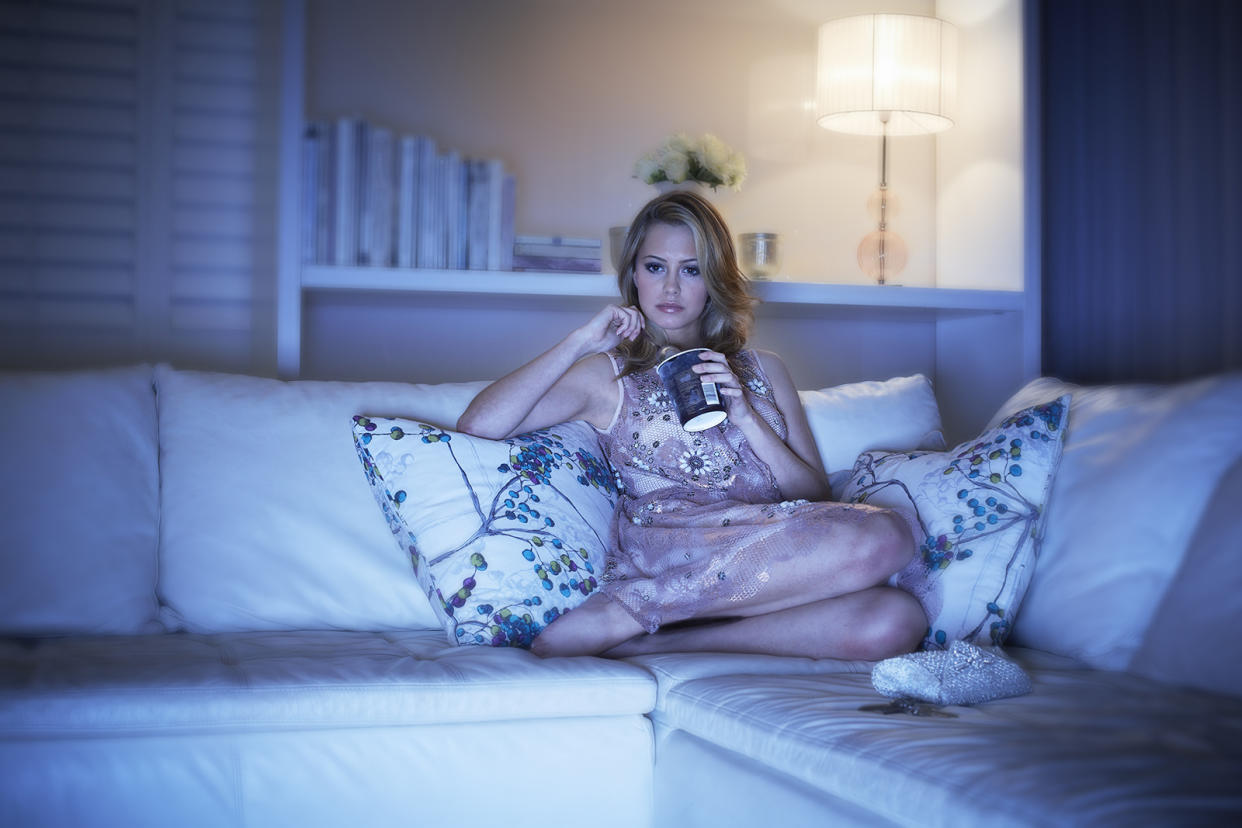You guessed it — binge watching is messing with your sleep

If you’re wide awake in the wee hours of the night, your addiction to House of Cards may be to blame.
According to a study published in the Journal of Clinical Sleep Medicine, investigators have discovered a link between binge watching in young adults and poorer sleep quality, more fatigue, and increased insomnia.
In the study, the researchers asked 423 men and women between the ages of 18 to 25 years to complete an online survey that assessed their regular television viewing, binge watching, sleep quality, fatigue, insomnia, and pre-sleep alertness. Binge watching was defined as “watching multiple consecutive episodes of the same television show in one sitting on a screen, be it a television, laptop, computer or tablet.”
An average binge watching session lasted three hours and eight minutes, with 52 percent of binge watchers viewing three to four episodes in one sitting.
After compiling the data, the study authors concluded the following:
80 percent of young adults identified themselves as binge watchers
20.2 percent of these volunteers had binge-watched at least a few times a week in the previous month
The participants who identified as binge watchers reported more fatigue, more symptoms of insomnia, poorer sleep quality, and greater alertness prior to going to sleep
Overall, binge watchers had a 98 percent higher likelihood of having poor sleep quality compared with those who did not consider themselves to be binge watchers
“Bingeable shows often have a complex narrative structure that makes viewers become completely immersed into the story,” co-author Jan Van den Bulck, professor in the department of communication studies at the University of Michigan in Ann Arbor, stated in a press release. “This intense engagement with television content could require a longer period to ‘cool down’ before going to sleep, thus affecting sleep overall.”
Robert Oexman, director of the Sleep to Live Institute, tells Yahoo Beauty that he agrees with these findings, as well as applauds the choice of the control group. “Not only are they probably the ones more inclined to binge-watch, but also because that’s typically a population group who sleep very well,” he says. “So for this to make that kind of an impact for a group of people who normally sleep well, that’s significant.”
Oexman, who is a member of the American Academy of Sleep Medicine, believes that if this research had also included older individuals, the results would have most likely indicated more serious sleep issues. “If you have adults in their 50s binge watching Game of Thrones, I’d actually suspect it would impact them more because the quality of deep sleep, and sleep in general, begins to decrease as we age,” he continues.
In order to balance your viewing and sleeping habits, Oexman first suggests watching your favorite shows in the morning, “like a Saturday morning binge watch.” But since nighttime tends to be the most convenient TV time for the majority of people, Oexman advises binge watching as early as possible in the evening, avoiding anything with alcohol and caffeine during the binge-a-thon, and setting an alarm for your desired stop time.
“We set an alarm clock to wake up, but very few people set an alarm clock to go to sleep,” he explains. “Even if you say you’re only going to watch two episodes, people tend to lose track of time because they’ve gotten snacks, gone to the restroom, taken some phone calls, and may have been on social media, so limiting the number of shows is probably not the correct way to do it. It’s better to say, ‘I need to be in bed by 10:30 p.m., so I’m going to set my alarm for 10 p.m.’”
And during those 30 minutes before bedtime, Oexman says it’s important to practice bedtime rituals that can lead to better sleep, such as engaging in relaxation techniques (e.g., taking a hot bath or shower), dimming the lights, and turning off all electronic devices — especially when you’re in the bedroom. “You should not associate your bedroom with watching television,” he concludes. “Your bedroom is for sleep and intimacy only.”
Read more from Yahoo Style + Beauty:
Follow us on Instagram, Facebook, and Pinterest for nonstop inspiration delivered fresh to your feed, every day. For Twitter updates, please follow @YahooStyle and @YahooBeauty.

